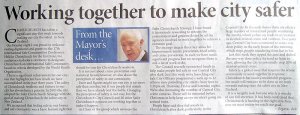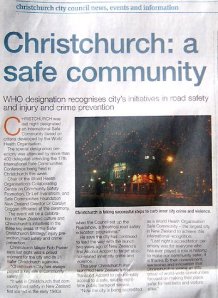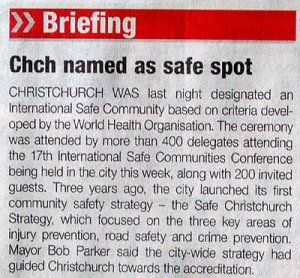 Media release, 31 October 2008
Media release, 31 October 2008
Aotearoa Legalise Cannabis Party
Scoop: *Nats are weak on Key issue : Drugs and Crime*
All Aotearoa Legalise Cannabis Party candidates standing for election say the superficiality of the “Law and Order” debate in New Zealand ought to be a major concern for voters.
Party Leader Michael Appleby (Wellington Central) says “Prime Minister-in-waiting John Key, describing his law and order vision for NZ, is concerned about an ‘explosion in drugs’ which – in reality – is actually an explosion in criminalisation of young and old New Zealanders.”
Mike Britnell, Christchurch Central candidate says “Prohibition created the black market and related crime, without limiting drug use. NZ is getting the worst of both worlds. As a closed-minded prohibitionist John Key will never make NZ better, safer or richer.”
Kevin O’Connell (Auckland Central) says “Mr Key and his National Party does not appear to fully understand freedom, responsibility, or true free enterprise, otherwise they would legalise and regulate.”
Danyl Strype (Ohairu) says “As a very successful stock market man – who understands what a 1000% mark up is – Mr Key ought to recognise that drug markets are classic examples of supply and demand. Prohibition as a ‘law and order’ solution is a dog chasing its tail.”
Paula Lambert (Christchurch East) says “Voters are misled and ill-informed, thanks to an inadequate canvassing of the evidence – and the ALCP candidacy – by the mainstream media. For too long any effective public health measures for cannabis have been unresolved. Instead, Law and Disorder reigns and the nation continues to seethe about violence, gangs, youth and drug-related crime.”
Steven Wilkinson (West Coast-Tasman) says “How can any prospective government pretend to talk about solving crime while they actively support the promotion of a huge black market via the high profit incentives of prohibition? We need an R18 cottage industry and relief for New Zealand taxpayers.”
Judy Daniels (Te Tai Tokerau) says “The taxpaying public are being taken for a ride. There are 15-20,000 cannabis convictions every year cluttering up NZ’s injustice system. These turn innocent peoples’ lives upside down whilst completely failing to improve, promote or protect the public health. Even worse for the community good, current drug laws are delivering an unmistakeable alienation factor, and promote a destructive underclass and underworld culture.”
Julian Crawford (Dunedin North) says “A rather conservative estimate (National Drug Survey) counts the cannabis black market as servicing 373,000 consumers. An obvious and popular intervention would be legal status, including an age limit for cannabis use in NZ. At the moment all voters are drowning in ‘tough on law and order’ rhetoric by National, Labour and other political parties vying for a prejudiced populist vote.”
It would be a start if all New Zealanders understood this and supported a rational debate on the Key to minimise harms and provide some protection. Meanwhile, the Aotearoa Legalise Cannabis Party is standing with an ethic that encompasses the triple bottom line of “Community, environment, and economics – cannabis law reform as key NZ issue – r18 cannabis as a key public health and safety issue.”
One in twenty votes would put the ALCP into the parliamentary mix, empowered to debate a long overdue positive change. The public are invited to view and consider a snapshot of its cottage industry vision for New Zealand that mainstream media are ignoring this election, see campaign speeches
Blair Anderson
http://mildgreens.blogspot.com
Related articles by Zemanta







 Jenny and Bill,
Jenny and Bill,




